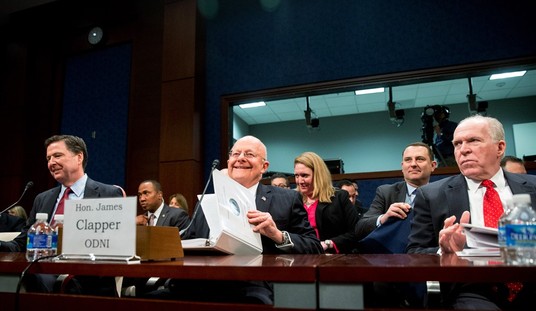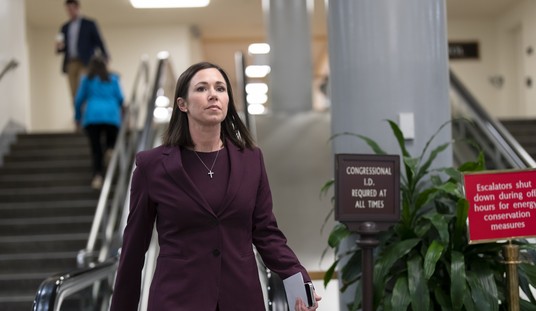Apparently, it is not only local governments that will engage in tyranny. Homeowner’s associations (HOAs) have also been found to participate in some questionable practices. In some cases, they have essentially formed their own mini surveillance states, monitoring residents – sometimes without their knowledge.
The Intercept published a report discussing this matter. The author brought up a story in which Mayor Thomas Kilgore of Lakeway, Texas, announced that his community was under a surveillance system. This was not previously known by residents.
“I believe it is my duty to inform you that a surveillance system has been installed in the city of Lakeway,” he announced.
The Intercept reported:
Kilgore was referring to a system consisting of eight license plate readers, installed by the private company Flock Safety, that was tracking cars on both private and public roads. Despite being in place for six months, no one had told residents that they were being watched. Kilgore himself had just recently learned of the cameras.
“We find ourselves with a surveillance system,” he said, “with no information and no policies, procedures, or protections.”
The deal to install the cameras had not been approved by the city government’s executive branch.
Communities across the United States are experiencing increased surveillance without the knowledge or consent of many residents, thanks to a partnership between police departments and private surveillance company Flock Safety, a startup founded in Atlanta in 2017 and currently valued at around $3.5 billion.
The company has strategically focused on homeowners associations (HOAs) to become one of the largest surveillance vendors in the United States. HOAs are a prime target for Flock due to their large budgets and potential access to private gated areas that are normally out of reach for law enforcement.
The Intercept’s investigation revealed that over 200 HOAs across the country have purchased and installed Flock’s license plate readers. The majority of these readers are connected to Flock’s TALON network, which enables police to track cars within their neighborhoods and scan approximately one billion vehicle images each month. Camera owners can also create their own “hot lists” of plate numbers that generate alarms when scanned, and then run them against state police watchlists and the FBI’s National Crime Information Center.
The increasing surveillance has raised concerns about accountability and the potential for abuse of the system. Dave Maass, Director of Investigations at the Electronic Frontier Foundation, questioned the consequences if somebody abuses the system, stating, “You don’t have that kind of accountability when it comes to a homeowners association.”
At a recent Lakeway city council meeting, the chief operating officer of Legend Communities, Bill Hayes, stated, “We thought we were just being a partner with the city. We didn’t go out there thinking we were being Big Brother.” Meanwhile, Flock Safety has dismissed incidents like those in Lake County, Florida, where nearly 100 cameras were erected overnight without a permit, as “an honest misunderstanding”. However, the increasing surveillance of community members’ movements across the country is no accident – it is a deliberate marketing strategy by Flock Safety.
However, concerns have been raised about the accountability and potential for abuse of such systems. Dave Maass, director of investigations at the Electronic Frontier Foundation, questioned the consequences of potential system abuse, stating, “there are repercussions of having this data, and you don’t have that kind of accountability when it comes to a homeowners association.”
Flock’s license plate readers are predominantly connected to the company’s TALON network, which allows for tracking within individual neighborhoods and provides access to a nationwide system of license plate readers that scans approximately one billion images of vehicles each month. Camera owners can create their own “hot lists” of plate numbers that generate alarms when scanned and will run them in state police watchlists and the FBI’s primary criminal database, the National Crime Information Center.
When questioned about Flock’s practices, Holly Beilin, a representative for the company, stated, “Flock Safety installs cameras with permission from our customers, at the locations they require,” adding that the company has “always supported the democratic process” and has appeared before numerous city council meetings.
The report notes that after facing a backlash, “the cameras were removed from communities in Texas and Florida,” but the company’s “license plate readers continue to rapidly proliferate daily.”
Flock Safety boasts a comprehensive range of surveillance systems that go beyond the scope of traditional models. In addition to capturing license plate numbers, Flock’s “vehicle fingerprint” technology can identify the state, vehicle type, make, color, missing and covered plates, bumper stickers, decals, and roof racks, providing a vast amount of data to law enforcement agencies.
While Flock maintains that the data it collects is stored on Amazon Web Services servers and deleted after 30 days, concerns about the consequences of such vast amounts of data remain. Dave Maass, director of investigations at the Electronic Frontier Foundation, has raised questions about accountability when it comes to HOAs, which are private entities and, therefore, not subject to public records requests or regulation.
The notion that an HOA could set up a surveillance system without informing residents is a chilling thought. It is bad enough when governments surveil citizens without probable cause. It is even worse when a private entity does the same – especially when they collaborate with the government to this end.
Local residents in various localities have filed lawsuits against Flock Safety, arguing that they are violating their right to privacy. But if the company is still continuing to install these systems without people’s knowledge, then it might be quite a long time before victims can use the legal system to put a stop to their machinations.
Of course, if people want to live in a community that is being surveilled, that is their prerogative. But installing these systems and monitoring people without their knowledge is nothing more than a violation of rights, and the company should be punished accordingly.













